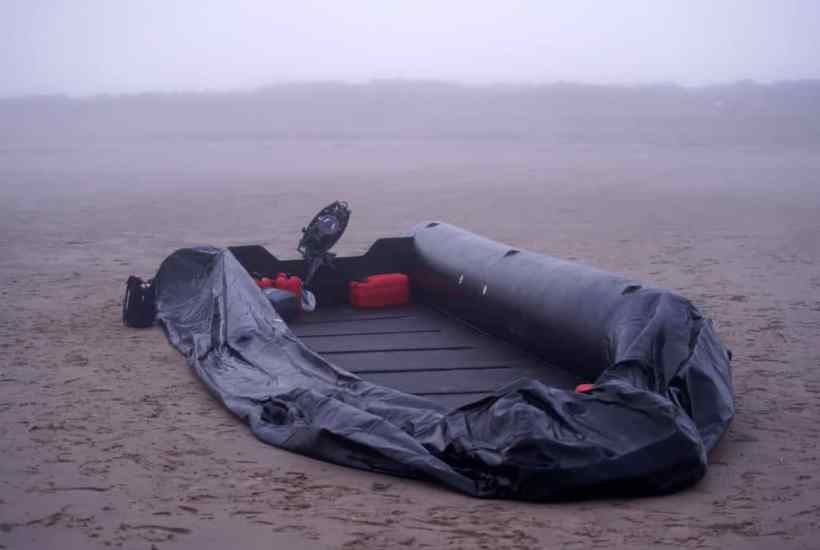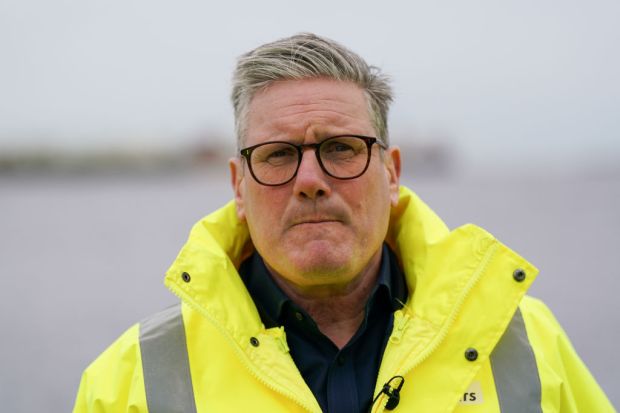For a week and a half no migrants at all crossed the Channel in dinghies. A theory began to take hold that the mere prospect of migrants being transferred on to Rwanda – a plan unveiled by Home Secretary Priti Patel in mid-April – was already acting as an overwhelming deterrent to people in camps around Calais.
A few rash souls broadcast this theory directly. Tory MP Andrew Bridgen, for example, boldly declared a few days back: ‘Priti’s migrant policy is working already. No illegal migrant crossing for a week and no income for people traffickers.’
Others of a more cautious frame of mind chose to add caveats, but still allowed for the possibility of success before actual implementation of the plan. After a week of zero crossings, I declared on my own Twitter feed: ‘This will be glorious if borne out over the coming weeks, esp for all of us who have advocated offshoring. But worth noting wind direction across England is still north-easterly atm.’
Then there was that man of parts Nigel Farage, a keen deep-sea angler and Kentish Man with long experience of pootling around the Channel off Dover, who told us: ‘There are some saying Rwanda is working because virtually no migrants have come now for the last six or seven days. Believe you me, I know this subject. That is nothing to do with the prospect of being shipped off to Rwanda. It’s because there has been a persistent, strong, north-easterly wind in the English Channel. When it gets calm again, the boats will continue to come.’
And lo, today it can be declared with confidence that Nigel was right. On Sunday the wind dropped, the sea grew calm and the boats resumed. More than 200 migrants were picked up and escorted to shore. With tranquil conditions forecast for the week ahead ministers are said to be braced for more ‘difficult days’, though the Government is also briefing that it now has the right policies in place to deter the crossings.
In which case it should get a move on with implementing them. For no apparent reason, the Home Office has already assured pro-migration campaigners that no transfers to Rwanda will take place until 10 May at the earliest. Though the Nationality & Borders Bill – which contained provisions to facilitate offshoring – has now received Royal Assent, legal challenges to the policy are already in the pipeline. The charity Freedom from Torture has instructed solicitors to seek a judicial review, saying it has ‘serious concerns about the lawfulness of the policy’.
Given the known reluctance of some civil servants within the Home Office to implement the policy, it would not come as a huge surprise were the date and venue of the first deportation flight to become known to left-wing activists in time for them to attempt to stop it.
Now that we know that the mere advertising of the policy is not sufficient to deter crossings, it is obvious that video footage of some actual transfers to Rwanda will be required – perhaps involving large numbers of Channel-hoppers – to test the policy’s deterrent potential.
So, a rather mundane question has become very important: is the Home Office sufficiently competent to have prepared robust deportation arrangements to come into force on 10 May or whenever it is that the first flight to Kigali is envisaged to take off?
Given its track record on multiple issues, especially those concerning migration, the jury must be out on that. Way back in 2006, John Reid, the incumbent Labour home secretary, declared the department’s immigration directorate ‘not fit for purpose’. We are about to find out whether it has improved.
Got something to add? Join the discussion and comment below.
Get 10 issues for just $10
Subscribe to The Spectator Australia today for the next 10 magazine issues, plus full online access, for just $10.




















Comments
Don't miss out
Join the conversation with other Spectator Australia readers. Subscribe to leave a comment.
SUBSCRIBEAlready a subscriber? Log in